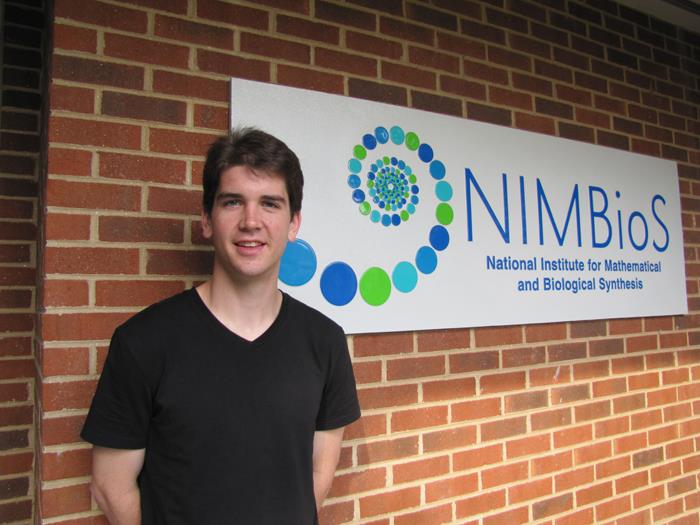Student’s Interdisciplinary Interests Lead to Competitive Research Program
For some students, summer break means lounging by the pool, bingeing on Netflix and maybe taking a class or two. For others, it could mean an internship or a part-time job. For senior Nathan Wikle, much of his summer was spent contributing to top-notch research that may one day help solve a multibillion-dollar problem in the United States.
Wikle, a mathematics major, spent eight weeks conducting research at the University of Tennessee in Knoxville as part of the Summer Research Experience for Undergraduates and Teachers (SRE). He was one of only 15 students in the nation invited by the National Institute for Mathematical and Biological Synthesis (NIMBioS) to partake in the SRE.
“It was a really wonderful environment to learn new material, and any apprehension I had didn’t last long,” Wikle said. “Overall, I felt very prepared throughout the summer, thanks in large part to my time at Truman.”
Wikle learned of the SRE opportunity after presenting previous research he completed at Truman during the NIMBioS Undergraduate Research Conference last fall, and was immediately intrigued by the program’s interdisciplinary focus on mathematics and biology.
Students in the SRE were divided among five research projects, and each project included faculty mentors. Wikle’s team was tasked with researching the spread of invasive species, which are any non-native plant or animal that can easily spread and cause significant change to its new environment. Examples of invasive species include: Asian carp, which can be found in freshwater rivers; Kudzu, known as “the vine that ate the South”; and the Africanized honey bee, also known as killer bees. In the U.S. alone, invasive species have been estimated to be responsible for as much as $120 billion in annual damages.
“Invasive species are an incredibly damaging and increasingly common problem,” Wikle said. “It’s clear that the fight against bio-invasion is not without reason, and a large amount of resources are used in the management of their spread.”
During his time in Knoxville, Wikle would spend anywhere from eight to 11 hours per day at work. His group was specifically attempting to develop a new model that would accurately project future invasions with a focus on identifying major hotspots. In addition to meeting with other students to establish their project goals for the day, his schedule included a range of tasks, from brainstorming sessions and literature reviews, to writing code and learning a new type of mathematical model or biological concept.
“We were provided a workspace in the building, surrounded by other motivated students, and the resources available to us were truly world-class,” he said. “The environment at NIMBioS encouraged hard work and collaboration, but in a very relaxed and friendly setting.”
Wikle still managed to find time for extracurricular activities, including hiking trips in the Smoky Mountains and venturing downtown to restaurants or to listen to live music.
“Most nights, we were free to do as we pleased, and this often meant just hanging out and getting to know the other student participants,” he said. “I really enjoyed this aspect of the program, and it was exciting meeting and living with other undergraduates with such similar academic interests.”
The fact that Wikle has a variety of academic interests may have helped him land a spot in the SRE. Even though he is a mathematics major, he became interested in biology during his sophomore year. He has participated in the Truman MathBio program, and he regularly uses elective credits for courses that are conducive to research, such as computer science, statistics and biology.
“This wide range of classes really prepared me for my experience this summer,” he said. “In particular, we did a lot of programming as part of our project, and my computer science background proved very useful.”
Wikle, a native of Columbia, Mo., picked Truman in part because of its liberal arts focus, so it is no surprise he has multiple subjects of interest. Eventually, he hopes to obtain a Ph.D. in statistics, and plans to work in academia with an emphasis on research. His work from the summer may be his first substantial contribution to the world of science. Wikle and the other students from his project have remained in touch and plan to publish their research sometime this fall.
More information about the SRE program and details about the projects can be found at nimbios.org/sre/sre_profiles2015.

Nathan Wikle at the National Institute for Mathematical and Biological Synthesis in Knoxville, Tenn.

